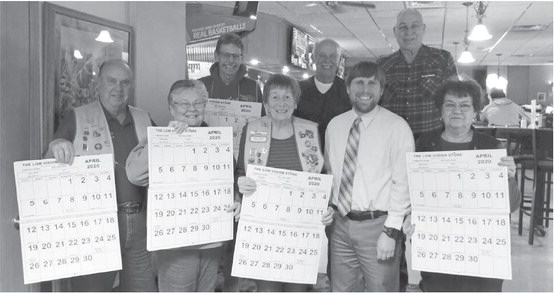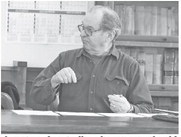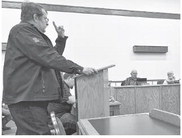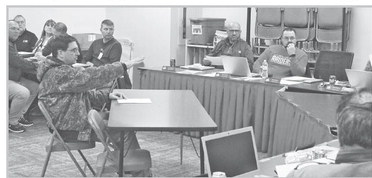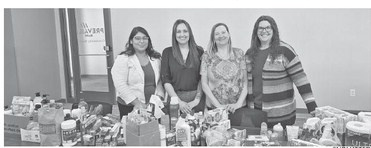Given the costs of open-cut, ….
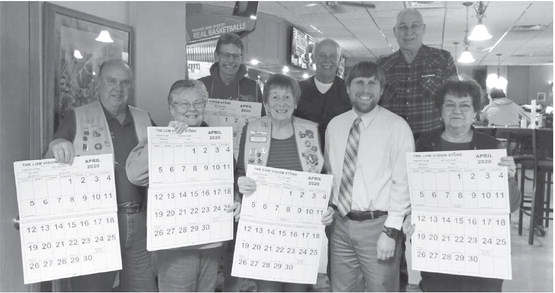

Given the costs of open-cut, Morrow said a cured in place pipe (CIPP) option was also looked at. This would involve replacement of the manhole in the parking area by the hardware store, but would not require the replacement of the existing storm inlets and manhole at the intersection of Landall Street and McComb Avenue. The cost of a CIPP rehabilitation is estimated at $115,000.
Morrow said following a discussion with the village’s public works director Tom Olson, MSA prepared a third option for the board to consider. He said McComb Avenue does not have a storm sewer with the water running down the gutters into storm drains at Landall and Hwy 102. The third option includes abandoning in place the Landall Avenue storm sewer east of McComb Avenue, and rerouting it down McComb from just south of Fayette Avenue to tie into the existing storm sewer on Hwy 102. This project includes the installation of new storm inlets and manholes, as well as the replacement of the McComb Avenue roadway and sidewalks for improved drainage of the street. The estimated cost of the third option is $730,000.
Seamandel said the recently approved state budget includes a one-time $75 million competitive grant program known as the Wisconsin Department of Transportation (WisDOT) Multimodal Local Supplement (MLS). He said the program provides grant allocation opportunities for a variety of project types across all levels of government. The breakdown includes $26 million for counties, $18.4 million for cities and villages, and $28.7 million for townships. Projects that are eligible for funding include roads, bridges, pedestrian and bicycle facilities, transit harbors and rail projects. The MLS program will support projects that contribute to economic growth and connectivity.
The MLS funding will pay for up to 90 percent of the eligible project costs and if a grant is awarded, the village would have six years to complete the project. Seamandel said based upon the option to abandon the storm sewer on Landall Street in place, and running a new storm sewer down McComb Avenue and connecting to the DOT’s existing storm sewer on Hwy 102, the MLS program may be an option for the village to pursue. This project would replace the entire traveled surface on McComb as well as installing new curb, gutter and sidewalks, which could make a case for downtown revitalization, interconnectivity and economic growth.
Seamandel said the application deadline for the MLS funding is December 6 and with the board’s approval, MSA will complete and submit an application to WisDOT at no cost to the village. The application will include a written project narrative, project cost estimate and photos.
Trustee Russ Bullis said McComb Avenue was in “tough shape” with the public works department trying to patch the curb, gutters and sidewalk with blacktop. Bullis said looking at the other options, he thought this was something the village should explore and apply for the grant. Bullis said for years people used the area where the storm sewer runs through as a dumping area to get rid of things and he thought the village might have trouble replacing or putting in a new storm sewer line through that area. He said McComb Avenue was something the village is going to have to deal with sooner or later and if they could get 90 percent funding for a project to rebuild the street, the board should “go for it.”
Trustees Jack Buksa and Cliff Mann both said the village should pursue the grant. Village president Bill Schreiner agreed, adding the more he heard from MSA about the program, the more appealing it became.
Vaping ordinance
The board approved an ordinance prohibiting the possession or use of electronic delivery devices or vapor products by persons under 18 years of age.
The ordinance defines an “electronic delivery device” as “any such device, whether manufactured, distributed, marketed, or sold as an e-cigarette, e-cigar, e-pipe, e-hookah, or vape pen, or under any other product name or descriptor. Electronic delivery device shall not include any product that has been approved or otherwise certified by the United States Food and Drug Administration for legal sales for use in tobacco cessation treatment or other medical purposes, and is being marketed and sold solely for that approved purpose.
The ordinance further defines “vapor product” as “any product containing or delivering nicotine, lobelia, or any other substance intended for human consumption that can be used by a person to simulate smoking in the delivery of nicotine or any other substance through inhalation of vapor from the product.”
Persons under 18 years of age with an electronic delivery device or vape products on their property or persons who are using or seen using an electronic delivery device or vape products would be subject to a fine of $50 plus court costs of $154.50.
Police chief Derek Beckstrand told the board passage of the ordinance would allow him to issue a ticket for an ordinance violation.
